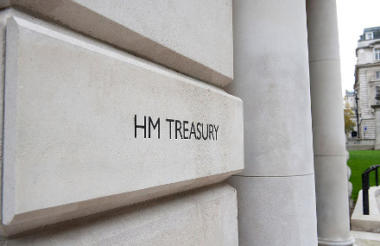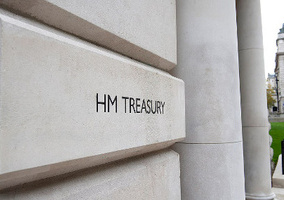The Libor process is worryingly unclear, but we should not be attacking the charities for receiving the grants, says Alice Sharman.
The front page of the Sunday Times this week featured a critical article accusing charities of having misspent money they were given through Libor grants.
But the article misses the point. It is government, not charities, which is to blame here.
The way the Treasury hands out of Libor grants but gives little indication of the “merit” on which these charities are judged has been raising questions for a while now.
Any system there is is undoubtedly shady, and repeated questions to the Treasury about these processes and how these charities are judged have received little response.
At times it seems that money is being handed out on a whim - an argument which is heightened by the former Chancellor of the Exchequer’s repeated use of personal pronouns when announcing new grant funding.
But, this lack of transparency is not the fault of the charities who have received this type of grant funding, and Andrew Gilligan's front page article in this past weekend’s Sunday Times was wrong to suggest this was the case.
Attack on the charity’s aims
His article featured several charities who had previously received Libor funding, and questioned what they had done with that money. It focused predominantly on the Warriors Programme, a charity which provides residential motivation and training programmes to veterans.
Gilligan described the charity, which received £933,000 worth of Libor funding, of subjecting “traumatised veterans to 'time-line therapy' and neurolinguistic programming, techniques described by psychiatrists as pseudoscientific, unproven and even dangerous”.
In a statement, the charity said: “We are disappointed that some parts of Andrew Gilligan's article fail to recognise the evidence the Warrior Programme has generated and the continual evaluation which we are undertaking.”
It went on to outline what the charity’s programmes had done, the randomised controlled trial that the charity undertook, and how it had implemented the results for it. It added that it agrees that “those working with veterans should deliver evidence based interventions and use robust methodology to evaluate their work”, and that this will ensure that veterans have better outcomes something Warrior is proud to be part of.
Speaking to the Treasury yesterday, I was told that this particular tranche of grant funding, which was featured on the front page of a national newspaper, was awarded in 2013. It came from the Community Covenant Fund, awarded by the Treasury to the Ministry of Defence, who were then responsible for ensuring how the money was divided up.
I could find nowhere where the Treasury, or in this case the MoD, had announced that Warriors Programme had received the money, but the charity itself had not hidden this information. It had recorded in detail in its account how it had received the money, and how it had been spent it. The charity itself had been transparent about that.
I am not saying that there aren’t some charities who have received Libor funding that perhaps should not have done – there definitely are – but Gilligan’s article reads like an attack on the charities who have received this money. A couple of the organisations he mentioned had folded, or couldn’t account for the money they had received, which is deeply concerning. But it should be the Treasury, or in this case the MoD, who are under scrutiny for their lack of transparency about the process.
To perhaps give the Treasury some credit here, the charity’s statement said: “Our Libor grant funded work was meticulously accounted for and the funding team received detailed progress reports. We delivered the project outcomes within budget and were complimented on the success of the project.”
The Treasury also does seem to be tightening up its Libor grant funding to an extent. Last month it announced that it was inviting military and emergency service charities to apply for the funding.
But as November’s Autumn Statement will likely bring more announcements of organisations receiving Libor funding, all eyes will remain on the Treasury and its processes for awarding this money.
Related articles











